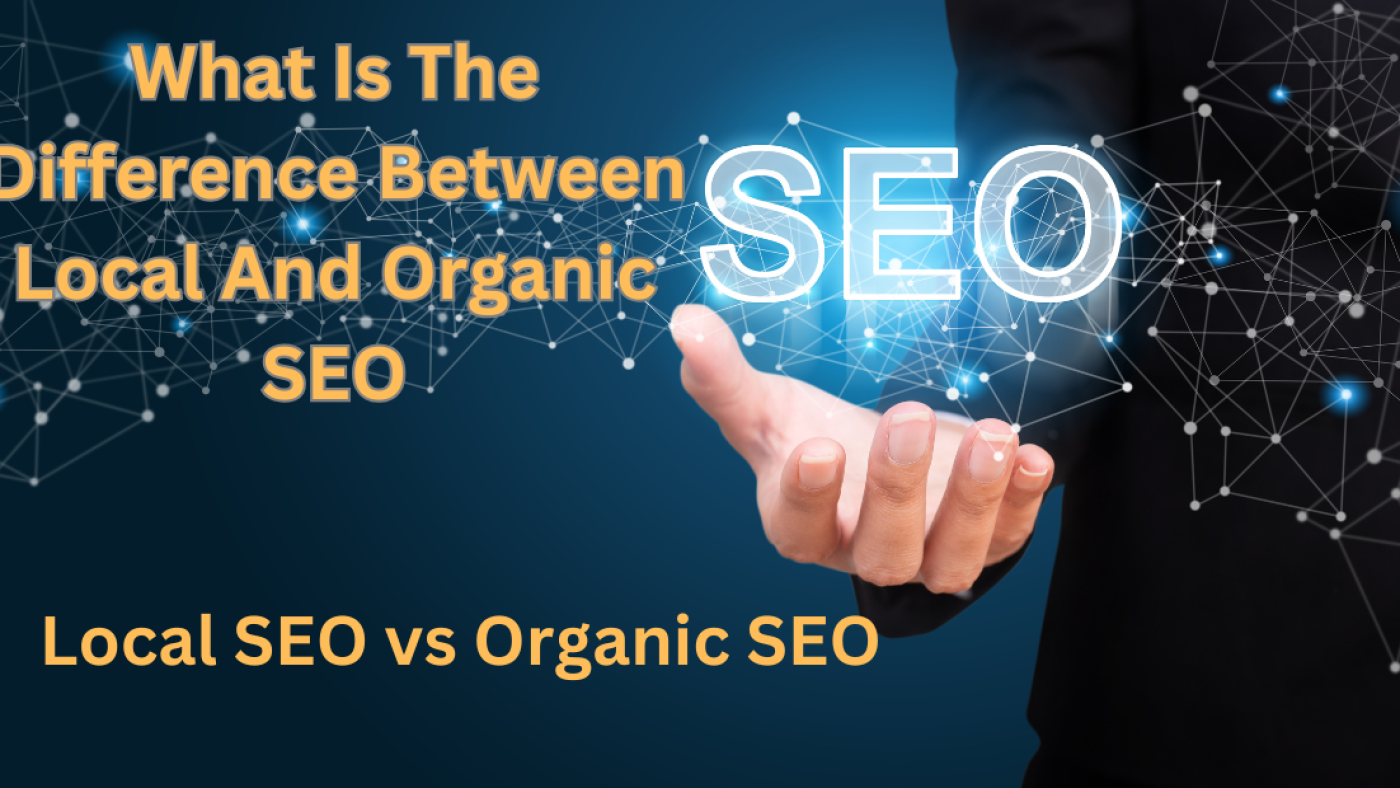When it comes to improving your website’s visibility on search engines like Google, understanding the differences between local SEO and organic SEO is crucial. While both strategies aim to increase your website’s ranking and drive traffic, they serve different purposes and target different types of searches. In this article, we’ll explore the key differences, their benefits, and how to implement each strategy effectively to boost your online presence.
What is SEO?
The process of improving your website and content to rank better in search engine results pages (SERPs) is known as SEO (Search Engine Optimization).There are two main types of SEO: organic SEO and local SEO. Each of these approaches focuses on improving visibility, but they do so in distinct ways, with different goals and tactics.
What is Organic SEO?
Organic SEO refers to the efforts made to improve your website’s ranking based on merit. It involves optimizing your content, backlinks, site architecture, and more to make your site more attractive to search engines. The goal of organic SEO is to rank for non-location-specific keywords, driving traffic to your website from anywhere in the world.
Key Features of Organic SEO:
- Global Reach: Organic SEO focuses on attracting users from anywhere, with no geographical restrictions.
- Keywords and Content: Organic SEO involves the optimization of keywords, meta descriptions, titles, and high-quality content that meets the user’s search intent.
- Backlinks: Rankings are greatly impacted by the number and caliber of backlinks from reputable websites.
- On-Page Optimization: Title tags, meta descriptions, header tags, and image alt text are optimized to match the search queries.
Why is Organic SEO Important?
Organic SEO is essential for building long-term traffic and authority for your website. Because it focuses on improving content relevance and user experience, the traffic generated through organic SEO tends to be more sustainable and cost-effective than paid ads. According to Backlinko, 53% of all website traffic comes from organic search.
What is Local SEO?
Local SEO, on the other hand, is a strategy designed to improve the visibility of your business in local search results. It’s primarily used by businesses that have a physical presence or serve specific geographic areas. Local SEO involves optimizing your online presence to appear in search results for users located in a particular region or city.
Key Features of Local SEO:
- Geographic Targeting: Local SEO optimizes your business for region-specific searches, such as “restaurants near me” or “plumbers in usa].”
- Google My Business (GMB): Optimizing and maintaining a Google My Business profile is a core element of local SEO. It makes companies show up in the local map pack.
- -Local Keywords: Local SEO includes the use of location-based keywords, such as “best pizza in [city name]” or “top-rated dentist in [area].”
- Citations and Reviews: Local citations (mentions of your business on other websites) and customer reviews play a significant role in ranking higher for local searches.
Why is Local SEO Important?
Local SEO is vital for businesses that operate in a specific location, as it helps them reach customers nearby who are actively searching for their products or services. According to Google, 46% of all searches have local intent. Local SEO not only improves visibility but also drives foot traffic and leads to higher conversion rates for businesses targeting local customers.
How to Implement Local SEO
For businesses targeting local customers, implementing local SEO is essential. Here’s how you can start:
- Create or Optimize Google My Business: Ensure your business is listed on Google My Business, and keep it updated with accurate information.
- Employ Local Keywords: Include location-based keywords in the title, meta, and content tags of your website.
- Encourage clients to post reviews on Google and other local directories in order to obtain local reviews.
- Build Local Citations: Submit your business information to local directories and ensure consistency across all platforms.
FAQs About SEO
Which SEO strategy is better for my business, local or organic?
It depends on your business. If you have a physical location or serve specific geographic areas, local SEO is a must. For broader reach and long-term growth, organic SEO is the key.
How long does it take for local SEO to start producing results?
You can see results from local SEO within a few months, especially if you have a well-optimized Google My Business profile and local citations.
Can I do both local and organic SEO?
Yes, many businesses benefit from implementing both strategies. Local SEO will help you rank for location-specific queries, while organic SEO can increase your visibility for broader, non-local searches.
Conclusion
Understanding the difference between local and organic SEO is essential for optimizing your online presence. Organic SEO is ideal for global reach, focusing on non-location-specific queries, while local SEO helps businesses attract nearby customers through location-based searches. By implementing both strategies effectively, you can maximize your business’s online visibility and drive more traffic to your website.


[…] specific SEO goals of your nonprofit—such as increasing organic traffic, improving local search rankings, or increasing donations—will also affect the cost. A well-defined […]
[…] Submit your business details to local directories, such as Yelp, Yellow Pages, or local Chamber of Commerce websites. These citations help boost your office’s visibility and contribute to local SEO ranking. […]